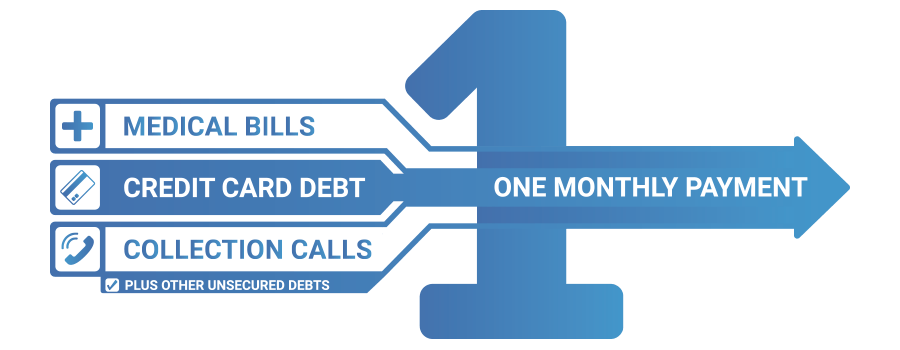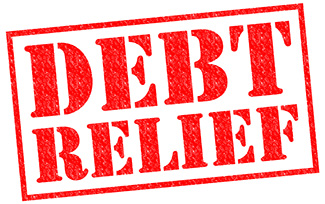
If you are struggling with credit card debt, you may want to consider negotiating with your creditor. You may be able to negotiate a reduction of the interest rate and balance. You can also opt for a hardship plan and/or workout agreement. This will lower your total amount owed and make it easier to pay the balance off faster.
The phone call is the best way to start negotiations with your creditor. You should be honest about your financial situation during this phone call. You can explain your current financial situation and request details about the company’s hardship plan. Keep a record of every conversation. A written record can help you to create a legal contract.
Once you have all the facts, you can present a claim for a reduction in your payment. You will also need to understand the impact of a settlement on your credit report. Debt settlement is considered to be a negative mark on your credit report, and it can hurt your future borrowing chances.

Your creditor would be interested to know that you are ready to create a plan to get payments on time. They want to keep your business and will do anything to ensure that you make timely payments. But, they might not like the idea that you settle your account with less than the total balance. They will often suspend your account until the hardship plan has been completed.
Before you make a call to your creditor, take a look at the amount owed on your account and consider the options available to you. One option is to offer a lump sum payment. Another option is to speak to a nonprofit credit counselling agency. These agencies can provide you with sound advice regarding how to manage your finances.
Knowing your financial situation will help you negotiate better with your creditor. An improved financial position can include a lower debt to income ratio, low credit utilization or no outstanding delinquencies.
You can expect to have long conversations while you are trying to negotiate your credit card debt. This could be for several weeks or even months. Your relationship with the creditor will determine whether you are asked for contact information or a copy credit report. Document the conversations to ensure that you have a record.

Once you have determined your options, contact the customer service department of your creditor. They can connect you to the appropriate department and provide you with the information you need.
You should then write down every detail you can think of such as the monthly balance and interest rates. You must be patient and persistent in negotiations. You will have a better chance of reaching an agreement if you take the time to prepare.
Negotiating a repayment schedule is the last step of the credit card debt negotiation process. You might be offered a lower rate of interest or a smaller minimum payment. Some creditors allow you to defer payments over a set period.
FAQ
How much debt are you allowed to take on?
It is vital to realize that you can never have too much money. Spending more than you earn will eventually lead to cash shortages. Savings take time to grow. So when you find yourself running low on funds, make sure you cut back on spending.
But how much is too much? Although there's no exact number that will work for everyone, it is a good rule to aim to live within 10%. Even after years of saving, this will ensure you won't go broke.
This means that even if you make $10,000 per year, you should not spend more then $1,000 each month. You shouldn't spend more that $2,000 monthly if your income is $20,000 And if you make $50,000, you shouldn't spend more than $5,000 per month.
It's important to pay off any debts as soon and as quickly as you can. This includes student loans and credit card bills. You'll be able to save more money once these are paid off.
You should also consider whether you would like to invest any surplus income. You may lose your money if the stock markets fall. However, if you put your money into a savings account you can expect to see interest compound over time.
For example, let's say you set aside $100 weekly for savings. It would add up towards $500 over five-years. After six years, you would have $1,000 saved. In eight years, you'd have nearly $3,000 in the bank. In ten years you would have $13,000 in savings.
At the end of 15 years, you'll have nearly $40,000 in savings. This is quite remarkable. You would earn interest if the same amount had been invested in the stock exchange during the same period. You'd have more than $57,000 instead of $40,000
That's why it's important to learn how to manage your finances wisely. You might end up with more money than you expected.
How can rich people earn passive income?
There are two ways you can make money online. You can create amazing products and services that people love. This is known as "earning" money.
A second option is to find a way of providing value to others without creating products. This is called "passive" income.
Let's assume you are the CEO of an app company. Your job is developing apps. But instead of selling the apps to users directly, you decide that they should be given away for free. Because you don't rely on paying customers, this is a great business model. Instead, you rely upon advertising revenue.
To help you pay your bills while you build your business, you may also be able to charge customers monthly.
This is how the most successful internet entrepreneurs make money today. Instead of making money, they are focused on providing value to others.
Which side hustles are most lucrative?
A side hustle is an industry term for any additional income streams that supplement your main source of revenue.
Side hustles can be very beneficial because they allow you to make extra money and provide fun activities.
Side hustles may also allow you to save more money for retirement and give you more flexibility in your work schedule. They can even help you increase your earning potential.
There are two types side hustles: active and passive. Passive side hustles include online businesses such as e-commerce stores, blogging, and freelancing. Active side hustles include jobs such as dog walking, tutoring, and selling items on eBay.
Side hustles that work for you are easy to manage and make sense. You might consider starting your own fitness business if you enjoy working out. You might consider working as a freelance landscaper if you love spending time outdoors.
There are many side hustles that you can do. Look for opportunities where you already spend time -- whether it's volunteering or taking classes.
One example is to open your own graphic design studio, if graphic design experience is something you have. You might also have writing skills, so why not start your own ghostwriting business?
Be sure to research thoroughly before you start any side hustle. So when an opportunity presents itself, you will be prepared to take it.
Side hustles aren’t about making more money. Side hustles can be about creating wealth or freedom.
And with so many ways to earn money today, there's no excuse to start one!
What is the difference between passive income and active income?
Passive income refers to making money while not working. Active income is earned through hard work and effort.
If you are able to create value for somebody else, then that's called active income. Earn money by providing a service or product to someone. You could sell products online, write an ebook, create a website or advertise your business.
Passive income can be a great option because you can put your efforts into more important things and still make money. Most people aren’t keen to work for themselves. People choose to work for passive income, and so they invest their time and effort.
The problem with passive income is that it doesn't last forever. If you are not quick enough to start generating passive income you could run out.
You also run the risk of burning out if you spend too much time trying to generate passive income. It is best to get started right away. If you wait until later to start building passive income, you'll probably miss out on opportunities to maximize your earnings potential.
There are three types to passive income streams.
-
Businesses - these include owning a franchise, starting a blog, becoming a freelancer, and renting out the property such as real estate
-
These investments include stocks and bonds as well as mutual funds and ETFs.
-
Real Estate: This covers buying land, renting out properties, flipping houses and investing into commercial real estate.
How can a novice earn passive income as a contractor?
Begin with the basics. Once you have learned how to create value, then move on to finding ways to make more money.
You might even already have some ideas. If you do, great! If you do, great!
You can make money online by looking for opportunities that match you skills and interests.
For example, if you love creating websites and apps, there are plenty of opportunities to help you generate revenue while you sleep.
If you are more interested in writing, reviewing products might be a good option. Or if you're creative, you might consider designing logos or artwork for clients.
Whatever your focus, choose something you are passionate about. It will be a long-lasting commitment.
Once you have found a product/service that you enjoy selling, you will need to find a way to make it monetizable.
This can be done in two ways. You can charge a flat price for your services (like a freelancer), but you can also charge per job (like an agency).
Either way, once you have established your rates, it's time to market them. This can be done via social media, emailing, flyers, or posting them to your list.
These three tips will help you increase your chances for success when marketing your business.
-
You are a professional. When you work in marketing, act like one. It is impossible to predict who might be reading your content.
-
Know what you're talking about - make sure you know everything about your topic before you talk about it. No one wants to be a fake expert.
-
Don't spam - avoid emailing everyone in your address book unless they specifically asked for information. You can send a recommendation to someone who has asked for it.
-
Make sure you have a reliable email provider. Yahoo Mail and Gmail are both free and easy-to-use.
-
Monitor your results. You can track who opens your messages, clicks links, or signs up for your mail lists.
-
You can measure your ROI by measuring the number of leads generated for each campaign and determining which campaigns are most successful in converting them.
-
Ask for feedback: Get feedback from friends and family about your services.
-
You can try different tactics to find the best one.
-
You must continue learning and remain relevant in marketing.
What is personal finance?
Personal finance is the art of managing your own finances to help you achieve your financial goals. This means understanding where your money goes and what you can afford. And, it also requires balancing the needs of your wants against your financial goals.
By mastering these skills, you'll become financially independent, which means you don't depend on anyone else to provide for you. You're free from worrying about paying rent, utilities, and other bills every month.
Learning how to manage your finances will not only help you succeed, but it will also make your life easier. It can make you happier. Positive financial health can make it easier to feel less stressed, be promoted more quickly, and live a happier life.
Who cares about personal finance anyway? Everyone does! Personal finance is one of the most popular topics on the Internet today. Google Trends has shown that searches for personal finance have increased 1,600% from 2004 to 2014.
People today use their smartphones to track their budgets, compare prices, build wealth, and more. You can read blogs such as this one, view videos on YouTube about personal finances, and listen to podcasts that discuss investing.
Bankrate.com estimates that Americans spend on average 4 hours per day viewing TV, listening to music and playing video games, as well reading books and talking with friends. That leaves only two hours a day to do everything else that matters.
If you are able to master personal finance, you will be able make the most of it.
Statistics
- 4 in 5 Americans (80%) say they put off financial decisions, and 35% of those delaying those decisions say it's because they feel overwhelmed at the thought of them. (nerdwallet.com)
- According to the company's website, people often earn $25 to $45 daily. (nerdwallet.com)
- Etsy boasted about 96 million active buyers and grossed over $13.5 billion in merchandise sales in 2021, according to data from Statista. (nerdwallet.com)
- While 39% of Americans say they feel anxious when making financial decisions, according to the survey, 30% feel confident and 17% excited, suggesting it is possible to feel good when navigating your finances. (nerdwallet.com)
- Mortgage rates hit 7.08%, Freddie Mac says Most Popular (marketwatch.com)
External Links
How To
How to Make Money online
The way people make money online today is very different than 10 years ago. Your investment strategy is changing. While there are many methods to generate passive income, most require significant upfront investment. Some methods are easier than others. However, there are many things you need to do before investing your hard-earned funds in anything online.
-
Find out what kind of investor you are. PTC sites are a great way to quickly make money. You get paid to click ads. On the other hand, if you're more interested in long-term earning potential, then you might prefer to look at affiliate marketing opportunities.
-
Do your research. Do your research before you sign up for any program. Review, testimonials and past performance records are all good places to start. You don't want to waste your time and energy only to realize that the product doesn't work.
-
Start small. Don't jump straight into one large project. Instead, start off by building something simple first. This will help you learn the ropes and determine whether this type of business is right for you. After you feel confident enough, you can start working on larger projects.
-
Get started now! It's never too late to start making money online. Even if it's been years since you last worked full-time, you still have enough time to build a solid portfolio niche websites. You just need a good idea, and some determination. Now is the time to get started!